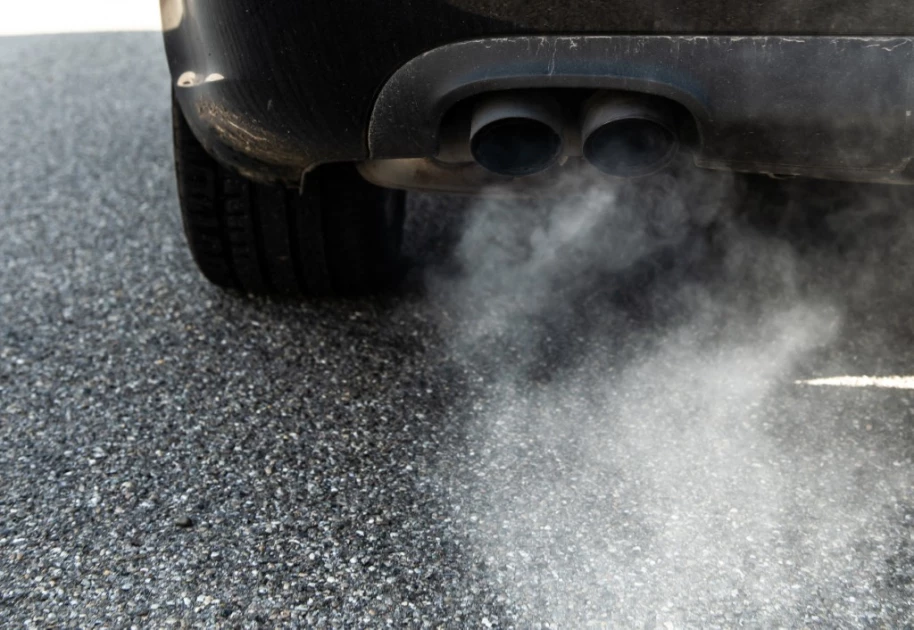World Bank proposes carbon tax, additional levies on alcohol and tobacco for Kenya

White smoke is coming from the exhaust of a car. (Photo by AFP)
The World Bank wants Kenya to introduce a
carbon tax to mitigate climate change externalities while also raising revenue
to lower its debt-to-GDP ratio, which currently stands at 65.5%.
The multilateral lender’s latest public
finance review for the country suggests a carbon tax on fuel be introduced at
the point of entry to encourage reduced emissions, stimulate innovation in
greener technologies, and create revenue streams that can fund climate
adaptation and mitigation measures.
Currently, the Energy and Petroleum
Regulatory Authority (EPRA) imposes several taxes on fuel imports among them
Value Added Tax (VAT), excise duty, road maintenance levy, and petroleum
development levy.
Now, the World Bank suggests that
introducing a carbon tax on imported fuels, raising it gradually to $25 per ton
of CO2 by 2030 (about Ksh.3,235) would yield additional revenues of about 0.25
percent of the GDP by this time.
The lender estimates that about two-thirds
of the tax would fall on the transport sector.
“There are climate co-benefits associated
with carbon taxes, including less air pollution and, in the transport sector,
fewer road traffic accidents, saving lives and reducing health costs,” the
World Bank says.
Currently, Kenya’s Medium-Term Revenue
Strategy for the 2024/25 to the 2026/27 financial years identifies the
potential for a dedicated carbon tax.
At the same time, the World Bank is
suggesting higher excise taxes on alcohol, tobacco, and sugar-sweetened
beverages, which it terms a considerable and growing contributor to mortality
and morbidity.
“Collectively, consumption of these
products accounted for 9.7 percent of all deaths in Kenya in 2019. This is a
significant increase in the 7.5 percent of deaths in Kenya in 1990 attributable
to consumption of these products. It is also significantly higher than the
regional average for 2019 of 7.4 percent,” the report says.
The bank proposes increases of 117 percent
on alcohol and 50 percent on tobacco, projecting that it will return tax rates
to 2016 levels and have the potential to return revenue to 2016 levels and
increase tax revenues from 0.27 to 0.60 percent of GDP.
At the same time, the World Bank suggests
that removing the tax on healthier alternatives such as water will increase
their affordability and incentivize substitution from drinks with a high sugar
content.
“The loss of tax revenues can be offset by
increasing taxes on sugar-sweetened beverages,” it says.
Want to send us a story? SMS to 25170 or WhatsApp 0743570000 or Submit on Citizen Digital or email wananchi@royalmedia.co.ke
Comments
No comments yet.



Leave a Comment